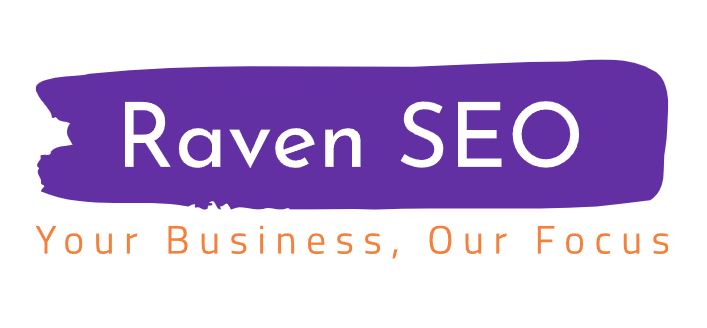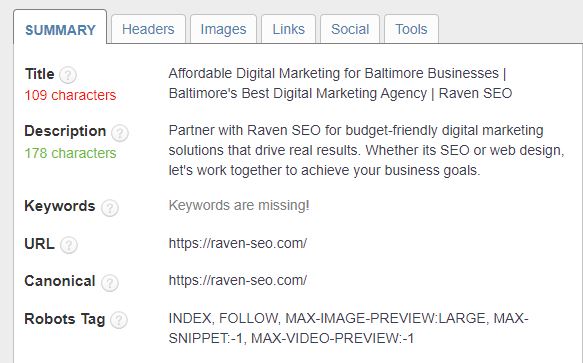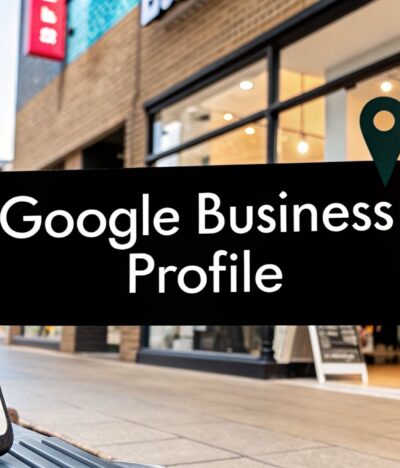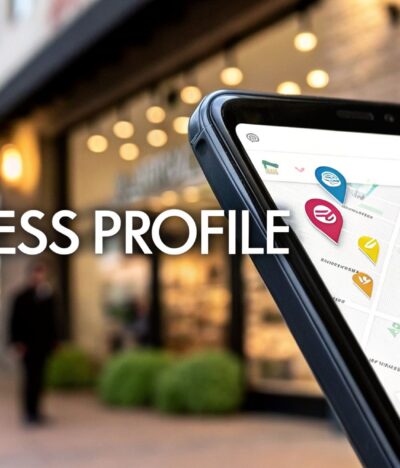Meta tags might seem like small snippets of code hidden away in your website’s HTML, but they play a big role in how search engines like Google understand and rank your content. Whether you’re a business owner in Towson or a seasoned SEO pro, mastering meta tags is essential for improving your website’s visibility and attracting more visitors. Let’s dive in and explore the world of meta tags!
What Are Meta Tags and Why Do They Matter?
Meta tags are bits of text that describe your web page’s content. They don’t appear directly on the page itself but live within the head section of your website’s HTML code. Think of them as labels that provide essential information to search engines.
Meta Tags Matter Because:
- They Influence Search Results: While not the sole ranking factor, well-optimized meta tags can improve your click-through rate from search engine results pages (SERPs).
- They Shape First Impressions: Your meta title and description are often the first things people see when your site appears in search results, influencing their decision to click or not.
- They Help Search Engines Understand Your Content: Meta tags provide context about your page, making it easier for search engines to categorize and rank it.
The Most Important Meta Tags for SEO
- Title Tag: The title tag is your headline in search results. It should be concise (under 60 characters), include your target keyword, and accurately reflect the page’s content.
- Meta Description: This brief summary appears beneath your title tag in search results. While not a direct ranking factor, a compelling meta description can entice users to click through.
- Robots Meta Tag: This tag instructs search engine crawlers on how to index and follow links on your page (e.g., “index, follow,” “noindex, nofollow”).
- Viewport Meta Tag: This tag is crucial for responsive web design. It tells browsers how to adjust the page dimensions to fit the screen on different devices.
- Social Media Meta Tags (Open Graph and Twitter Cards): These tags control how your content appears when shared on social platforms like Facebook or Twitter, making it more visually appealing and shareable.
Common Questions About Meta Tags
Do meta keywords still matter?
No, they’ve been largely deprecated by search engines like Google.
How often should I update my meta tags?
Regularly as you update your content or want to target new keywords.
Are meta tags the only factor in SEO? No!
They’re just one piece of the puzzle. High-quality content, backlinks, and user experience are all important.
Related Web Development & SEO Aspects
While meta tags are crucial, these related areas are equally important for your website’s SEO success:
- Header Tags (H1, H2, etc.): These tags structure your content and signal its importance to search engines.
- Image Optimization: Compressing images, using descriptive file names, and adding alt text can boost SEO and accessibility.
- Website Speed: Slow loading times hurt both user experience and search rankings. Learn more about how to optimize your website’s speed.
- Mobile-Friendliness: Ensure your website adapts seamlessly to different screen sizes.
- Internal Linking: Link to other relevant pages on your site to help search engines understand its structure and guide users to more content.
How to Edit Meta Titles in WordPress (Step-by-Step)
Editing your meta titles in WordPress is relatively simple, especially if you’re using a plugin like Yoast SEO (which we highly recommend!). Here’s a step-by-step guide:
- Install and Activate Yoast SEO: If you haven’t already, install and activate the Yoast SEO plugin from your WordPress dashboard.
- Navigate to Your Post or Page: Open the post or page you want to edit in the WordPress editor.
- Scroll to the Yoast SEO Section: You’ll find a Yoast SEO section below the main content editor.
- Click on the “Edit Snippet” Button: This will expand the Yoast SEO box to reveal the meta title and meta description fields.
- Edit Your Meta Title: Type your desired meta title in the “SEO title” field. Yoast SEO will even give you feedback on the length and keyword usage.
- Save Your Changes: Click “Update” or “Publish” to save your changes.
If you’re not using Yoast SEO, you can still edit meta titles manually. Look for a “Meta Title” or “SEO Title” field in your theme’s customizer or page settings.
Remember: Your meta title should be concise, engaging, and accurately reflect the content of your page. Include your target keyword(s) for SEO optimization.
Get Your Meta Tags Right with Raven SEO
If you need expert help optimizing your website’s meta tags or any other aspect of SEO, Raven SEO is here to help! Our team specializes in crafting effective SEO strategies for businesses in Baltimore that drive results.
Don’t miss out on the opportunity to maximize your website’s potential. Contact Raven SEO today to discuss your needs and how we can take your SEO to the next level!




